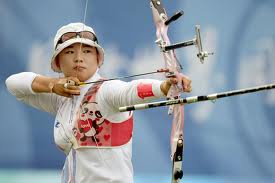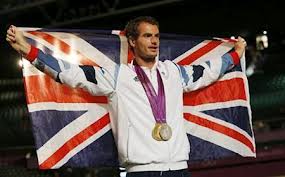Funding threats in sport
Two funding issues have emerged this week from opposite ends of the planet, and both beautifully highlight the delicate balance that all bodies and participants in tennis have to find.
The first news that caused comment all over the British press was the allocation of funds from Sport England. The government has a good record in recent years for supporting sport, in particular impressive hauls of medals in the last two Olympic Games.
The criterium for government funding is participation. Certain sports have shown marked improvements in participation levels, such as archery and athletics. There are others, but I take these two because they indicate how differently participation levels can be improved.
Icon setting

Athletics is immensely visible in the public eye. Although there isn't that much on the TV, and there is no cohesive athletics annual competition that people can follow, when it does come on the TV you can't fail to be wowed by what you see. The visuals of athletics are stunning. You can see the efforts of athletes with almost bizarre unimaginable powers. It is all set in gigantic stadia with colours that make the whole event watchable. Increased funding, especially after a good medal haul, is logical.
Participation culture

With archery, the British team has had frequent Olympic success, so enthusiasts shouldn't have much trouble in bringing in new talent. However, we don't see a single archer on TV for four years, and then in the Olympics we see rather drably dressed often middle-aged people shooting an arrow we can't see through the air. The visuals aren't great. I can't imagine young people being turned on by what they see on TV every four years. But participation levels have improved, and I don't know how those committees all over the land do it. So they get increased funding for this effort, and good luck to them.
Two sports have suffered in the funding stakes, swimming and tennis.
Swimming did very well at the Olympics four years ago, and therefore set higher medal targets for this year's games, not achieved. Like archery, the athletes may have stunning bodies, but we don't see them - they're in the water. I can' t name any swimmers. After the poor results this summer, the Director of Swimming lost his job, and the new manager has been difficult to find. Who wants to take on a job with unrealistic objectives? AND participation levels are down. A double whammy. Now funding gets reduced too.
Role model for Brits

With tennis there's a problem. There is an LTA tennis director who is sitting on damning statistics. Participation levels down, and shockingly bad figures in the mens' game, offset by a little jump in the women's game, in my opinion partly caused by the recruitment of Judy Murray last year. The LTA chief still manages to keep his job. How? For such an enjoyable, visible, media happy sport, and with a super icon Andy Murray; this guy is clearly not performing. Everybody who knows anything about tennis in UK is complaining. But what do you expect? Not only is the LTA Director under-performing, but all the tennis centres around UK too. Figures are down, unable to exploit such a sexy sport.
More, the previous week, one of the "top" British pros, Jason Goodall, has said he's thinking about quitting the game, because he can't afford it. He can't get his world ranking above about 250, so this is no surprise that he can't feed himself. But he has benefitted from LTA funding in the past - for nothing.
Where do we go from here? Participation levels are indeed everything. But you must also link dynamic participation with conversion at the pro level. If not, those participants are clearly not playing the world game.
In the same week the Australian Open, due to start in three weeks, has announced increased prize money, especially for the earlier rounds, $27,600 for the first round loser. This is in recognition of how difficult it is for a pro from about 150 on the ranking list to make a living from tennis. This is a wonderful gesture, and shows that at least administrators at the Aussie Open have a sense of reality. The tennis circuit is incredibly difficult to get onto, and stay on. It costs a fortune. We are doing the game a favour when we are giving young talent a better chance of survival.
Have A Great Story About This Topic?
Do you have a great story about this? Share it!
Five of our most popular pages
. tournament win
. finding a sponsor
. the touring pro
. the master at work



